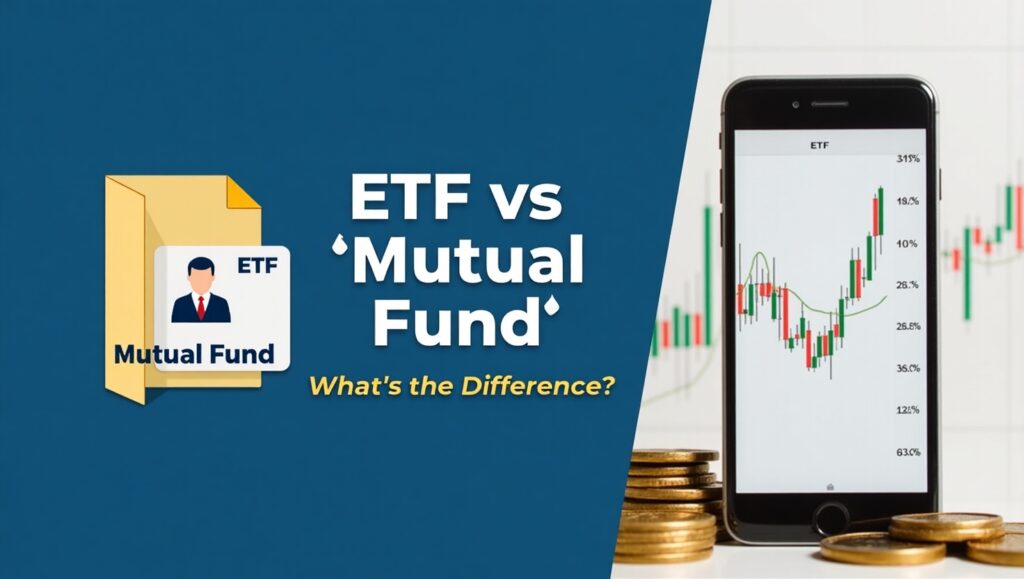If you’re new to investing, you’ve probably heard of ETFs and Mutual Funds.
Both help you diversify your investments, but they work differently.
Let’s break it down in simple terms so you know which one is better for your financial goals.
📦 What Are They?
✅ Mutual Fund:
- A pool of money from many investors.
- Managed by a professional fund manager.
- You buy/sell at the end of the trading day at the Net Asset Value (NAV).
✅ ETF (Exchange Traded Fund):
- Also a pool of money from many investors.
- Traded like a stock on the stock exchange.
- You can buy/sell anytime during market hours.
📊 Key Differences
| Feature | Mutual Fund | ETF |
|---|---|---|
| Trading | End of day (NAV price) | Throughout the day (like stocks) |
| Fees | Higher (active management) | Lower (usually passive index funds) |
| Minimum Investment | Often higher (e.g. $500+) | Can start with just 1 share |
| Management | Actively or passively managed | Usually passively managed |
| Taxes | Less tax efficient | More tax efficient |
💸 Which One Is Cheaper?
- ETFs generally have lower expense ratios.
- Mutual funds may charge management fees or entry/exit loads.
✅ If you’re cost-conscious, ETFs might be better.
💼 Which One Should You Choose?
Choose Mutual Funds if:
- You prefer hands-off investing with expert management.
- You invest via SIPs (Systematic Investment Plans).
- You don’t mind higher fees for professional help.
Choose ETFs if:
- You want more control and lower fees.
- You’re comfortable using a trading app or stock broker.
- You want to invest in real-time and track the market.
🧠 Final Verdict
Both are great tools for growing wealth — it just depends on your style.
- Want convenience and expert help? → Mutual Fund
- Want flexibility, lower fees, and control? → ETF
💡 You can even invest in both to balance your portfolio!

